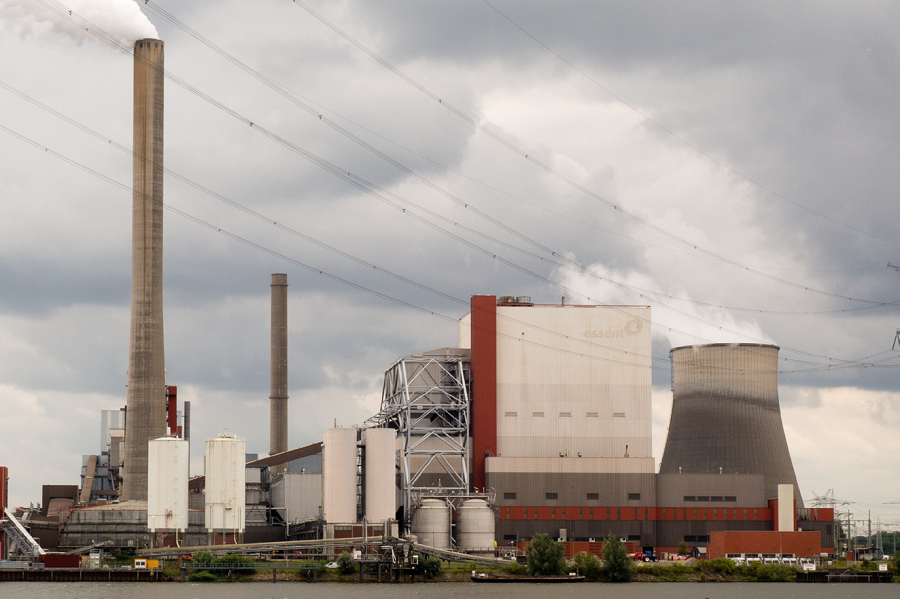The digital transformation that has disrupted and reshaped the industrial sector in recent years, known as the fourth industrial revolution or industry 4.0, has now reached a new chapter with the development of what has been dubbed as industry 5.0.
This new stage implies a more integrated and circular concept of the manufacturing process, different business models and a new industrial approach that puts technology and innovation at the service of sustainability, wellbeing and resiliency.
According to the European Commission, industry 5.0 provides a new vision that “aims beyond efficiency and productivity as the sole goals and reinforces the role and the contribution of industry to society” by placing “the wellbeing of the worker at the centre of the production process” and by using “new technologies to achieve prosperity beyond jobs and growth, while respecting the production limits of the planet”.
With these goals in mind, several startups have developed innovative technologies to redesign the industry and have attracted hefty investments from venture capital funds and corporate venturing units of industrial, technological and financial corporations.
Despite disruption and delays caused by the covid-19 pandemic, 309 corporate-financed deals were inked in the industrial sector in 2020, worth a total of $6bn, a 54% increase on 2019.
In 2021, activity has been even stronger, with 352 deals signed worldwide in the first 11 months of the year, worth an aggregate value of more than $12bn.

US-based industrial startups have collected the highest number of corporate-financed rounds in 2021, signing 133 deals, followed by Japan-headquartered businesses with 73 rounds and Chinese companies with 44.
Japanese telecommunication firm SoftBank, financial services group Fidelity and electronics producer Sony have been among the top corporate investors in industrial deals in the past two years.
The strong growth recorded by the industry has been driven by technological advancements achieved in the chemical sector, which has considerably expanded in the past few years, exceeding revenue of $3.3 trillion in 2020, despite the slowdown in activity caused by the pandemic.
The global chemical market is expected to grow to $3.7 trillion in 2021 and continue to expand in the coming years at a 4% CAGR, reaching $4.3 trillion by 2025, according to data from Research and Markets.
“The chemical sector is experiencing a time of strong transformation, probably the most radical change of the past 100 years,” said Ginger Rothrock, senior director at HG Ventures, the corporate venturing unit of industrial conglomerate The Heritage Group. “This transformation has happened across different segments, technologies and applications, but has been driven by the same common denominator – sustainability.”
Linear to circular chemistry
One of the most powerful sustainability-driven trends that has sparked disruption across the industrial sector is the development of new chemical processes able to reduce pollution by implementing the adoption of a circular economy.
This means replacing our traditional, linear approach of “take-make-dispose”, where raw materials are harvested, transformed into products and finally discarded as waste, with a circular model based on reusing and recycling.
“A circular chemistry could produce a strong domino effect on our entire economy,” said Rothrock. “By eliminating expensive and highly polluting disposal processes and by finding cyclical ways of
re-introducing raw materials into the manufacturing process, we could massively cut costs and increase returns, while protecting the environment and building a more decentralised supply chain.”
Among the startups that have developed circular solutions for the repurposing of recycled materials is Pretred, a US-based company that has recently raised funding from HG Ventures.

“Pretred has developed a technology able to re-introduce tyre waste into the production cycle and reuse the raw material to manufacture industrial barriers for roads and construction,” said Rothrock. “This is a typical example of a technology that changes the way in which value is obtained and preserved and creates a business model where the use of our resources is optimised and sustainability is prioritised over waste.”
This circular approach has found effective applications across the entire life cycle of chemical products, not only in the final stage of waste disposal, but also in the initial phase of designing a raw material.

“We have started to see some design for recycling, where materials and products are being designed and manufactured with the circular economy in mind,” said Rothrock. “This is an extremely promising trend that is emerging across the industry and will further grow and develop in the coming years.”
One such example is the technology developed by France-based Carbios, a startup that has produced plastic with embedded enzymes able to degrade the material in certain heat and water conditions. This allows plastic to break down at the end of a product’s life through a cleaner and more controlled process.
Bio-based synthetics
Technological advancements have recently been achieved in the production of chemicals from plants, waste-based feedstock and renewable resources, instead of fossil fuels and phosphates, thus reducing air and water pollution.
This segment of the chemical industry has attracted large investments in 2021, including a $118m series C round led by pharmaceutical firm Novo for Genomatica, a company that specialises in the production of sustainable oils from waste-derived raw materials.
According to the company, its technology recreates molecularly identical materials that can function and perform just like their fossil fuel counterparts, while lowering the environmental impact by 93% compared with conventional polluting materials.

Genomatica’s offering includes replacements for plastic-based spandex and nylon, which are often used to make clothing, carpets and food packaging, as well as
bio-based butylene glycol, which is used to produce cosmetics.
Solugen, a US-based company that has recently raised a $350m series C round led by Singapore’s sovereign wealth fund GIC, is also operating in the same field. The company has developed enzymes that can turn dextrose, a simple sugar derived from corn, into chemical materials used in a wide variety of industrial applications.
Another startup that has achieved promising results in this sector is Biosynthetic Technologies, a developer of bio-based synthetic molecules that are made from organic fatty acids found in plant oils. The company is backed by HG Ventures and has recently completed a series A round of an undisclosed amount.

“A widespread adoption of
bio-based chemicals is essential to build a cleaner future where our industry can be part of the solution and not part of the problem,” said HG Ventures’ Rothrock. “I expect companies such as Biosynthetic Technologies to attract further investments in the coming years and the production of bio-based synthetic compounds to become a core segment of the chemical industry through new technological advancements and a wider adoption of its products and processes across different sectors and markets.”
Ginger Rothrock, senior director, HG Ventures
AI-powered chemistry
The chemical industry has strongly benefitted from the adoption of artificial intelligence (AI)-powered applications that have the potential to transform the entire business model of a chemical company, disrupting every process from R&D to production, customer interaction, distribution and sales.
According to a study by Accenture, more than 70% of chemical businesses that have implemented industrial AI applications have reported strong improvements in their KPIs.
Machine learning has been pivotal in molecule synthesis, predictive analysis and the detection of molecular properties, helping researchers achieve concrete results in many experimental development phases.
In supply chain management, AI-powered sensors and connected systems have improved transportation, trackability and safety, while reducing risk and cutting cost.

Quantum leap
Furthermore, quantum computing applications have been developed to optimise data analysis for the chemical industry.

“The application of machine learning and quantum computing to the chemical industry is extremely promising and will open a wide array of possibilities for further innovation and technological advancements,” said Markus Solibieda, managing director of BASF Venture Capital. “One of our portfolio companies, Zapata Computing, is developing an operating model for quantum computers called Orquestra, which helps businesses and organisations leverage quantum capabilities in order to generate augmented data sets, speed up data analysis and construct better data models for a range of applications including chemistry and materials science.”
Markus Solibieda, MD, BASF Venture Capital
Last year, Zapata received $38m in series B funding backed by a pool of corporate investors, including BASF Venture Capital, as well as the venturing units of telecommunication conglomerate Comcast, technology provider Honeywell, pharmaceutical firm Merck and industrial equipment maker Robert Bosch.
Despite these promising achievements, the chemicals industry has many challenges to overcome, including resistance to a more widespread adoption of digitalisation.
“The chemical industry has been one of the slowest in adopting digital technologies and software-powered processes,” said HG Ventures’ Rothrock. “This has been a strong limitation that our industry needs to quickly overcome in order to guarantee that the advancements achieved in R&D can be widely adopted by plants and manufacturing facilities and across the entire supply chain.”
The chemical industry would also benefit from more transparency across the supply chain and standardised tracking practices that are currently still lacking.
“There is strong demand from consumers and also from corporates to increase the level of transparency across the industry around materials’ origins, production, distribution and so forth, through the entire supply chain,” said BASF’s Solibieda. “More information is needed about the carbon footprint of chemical processes and products and more effective tracking standards have to be put into place to achieve a greater level of transparency.”

